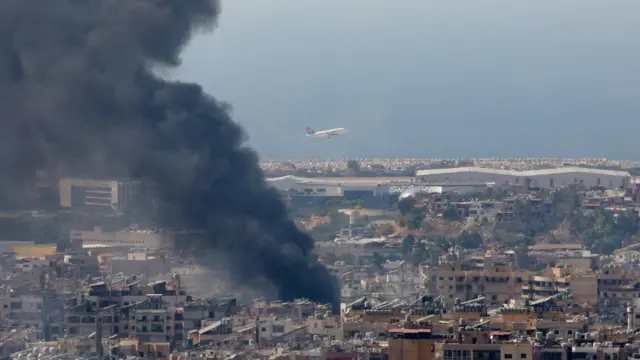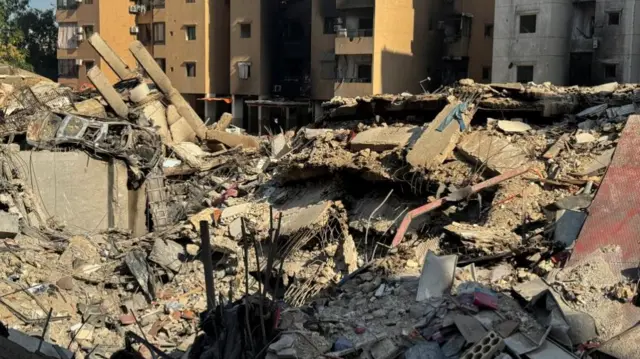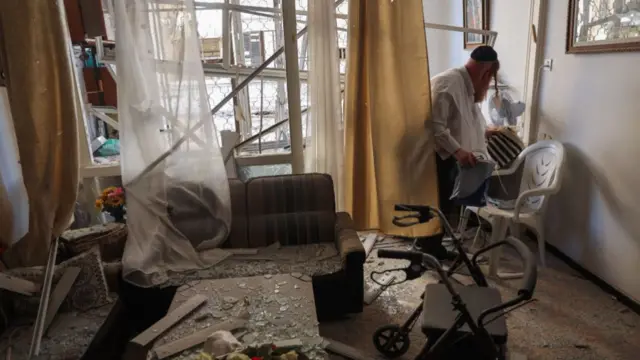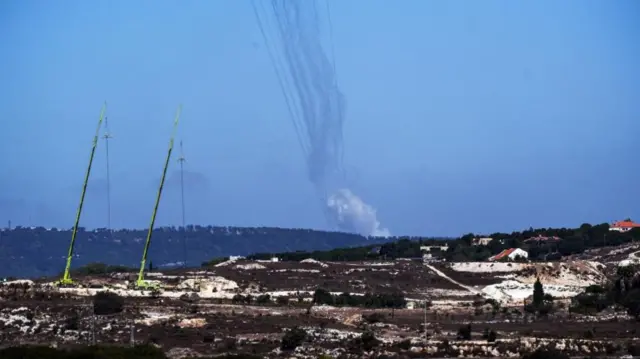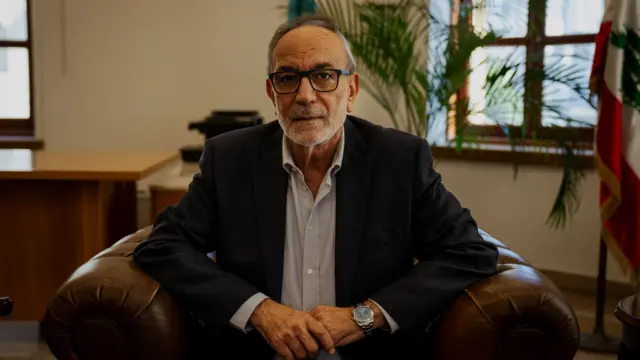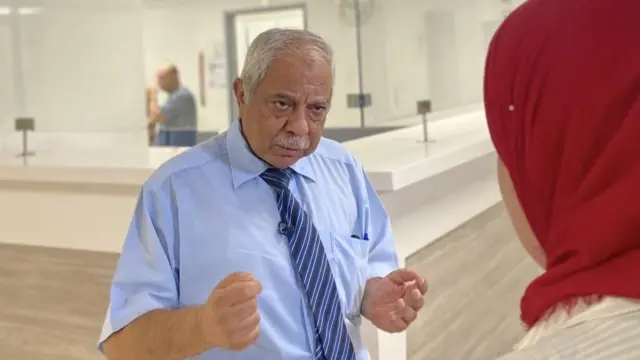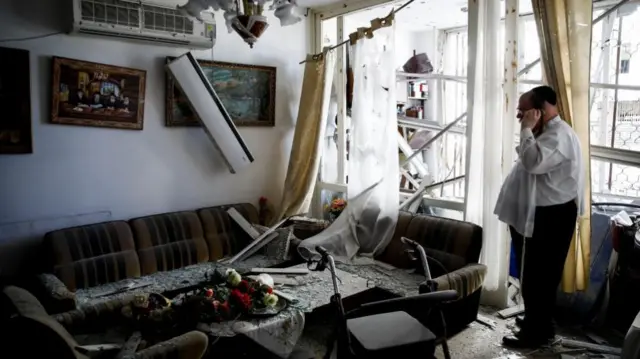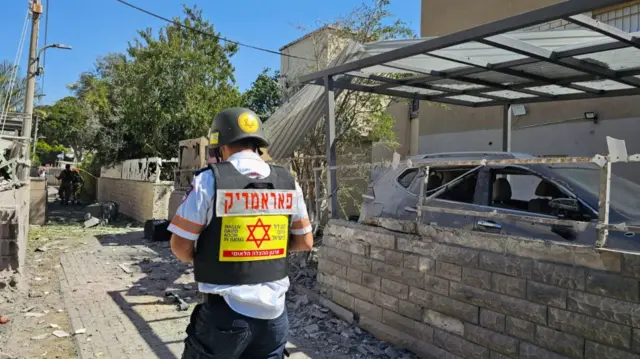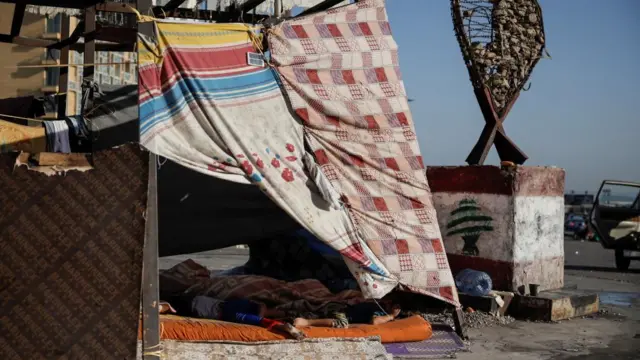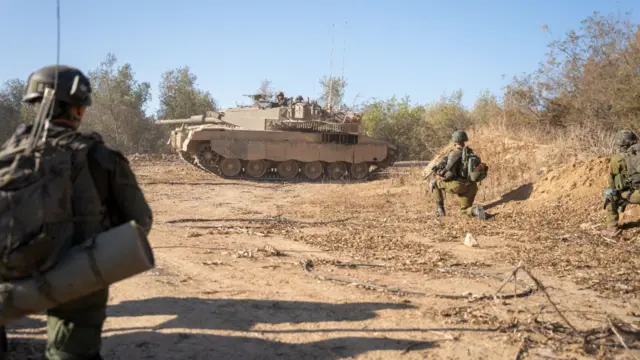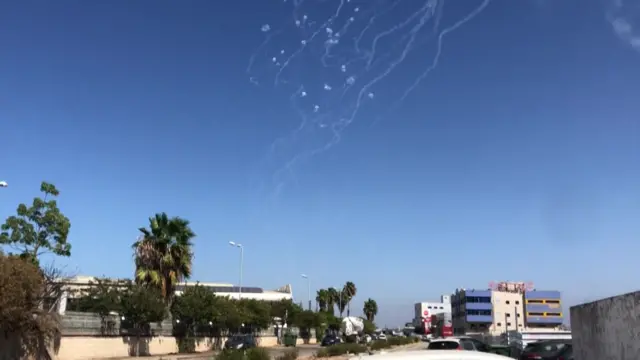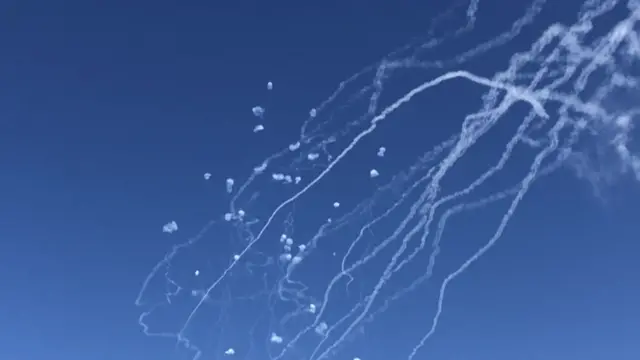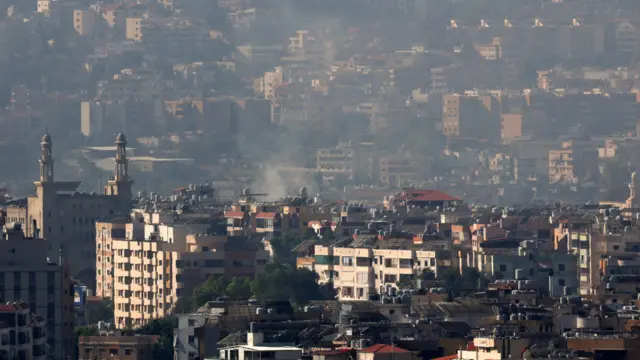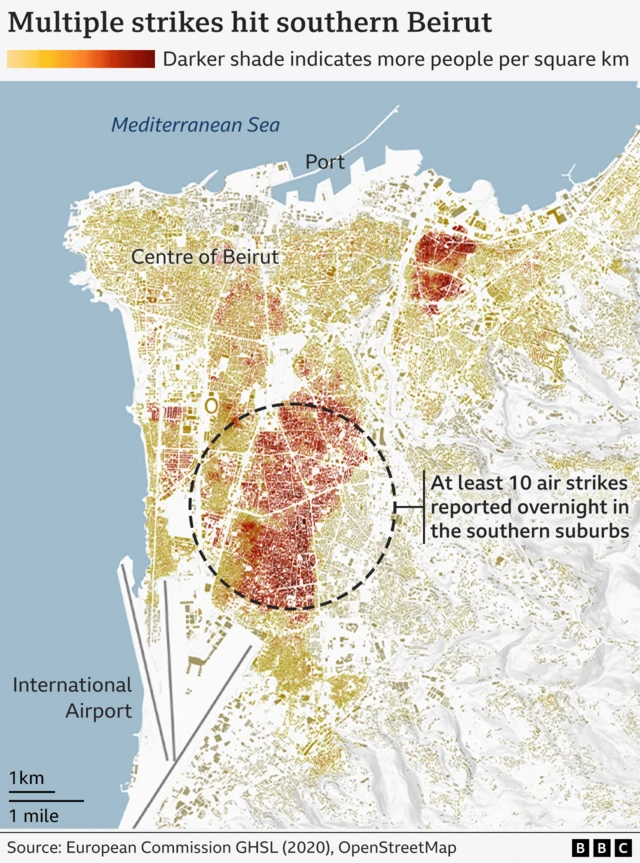How can there be peace? It's a reasonable questionpublished at 14:57 BST 8 October 2024
 Paul Adams
Paul Adams
Diplomatic correspondent
Earlier, we spent an hour answering your questions live - you can see a selection earlier in the page.
How can there be peace, Tony from Caernarfon asked, while Iran, Hamas and Hezbollah are committed to Israel’s destruction?
It’s a perfectly reasonable question. "Death to Israel" has long been a rallying cry among members of the "axis of resistance”.
For Israelis, this is existential. Never mind that Israel, as the region’s unrivalled superpower, has the military and intelligence capability (and allies) to deal - so far - with pretty much everything its enemies throw at it.
But, says Israel, the intent matters.
The Hamas attacks of last October confirmed Israelis’ worst fears about what the "axis of resistance" will do, given half a chance.
Hezbollah has in the past spoken of invading northern Israel in a similar way (and produced videos outlining their plans).
Israel sees the hand - and the ideology - of Iran behind both groups, as well as the Houthis in Yemen and so-called "Popular Mobilisation Units" in Iraq.
For their part, the groups argue that it is Israel which denies the political rights of the Palestinians and seeks to destroy them.
Would they drop their opposition to Israel’s existence if Israel made a durable peace with the Palestinians?
It’s not a proposition that’s ever been properly tested.
